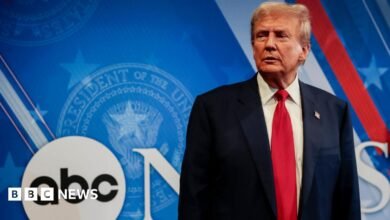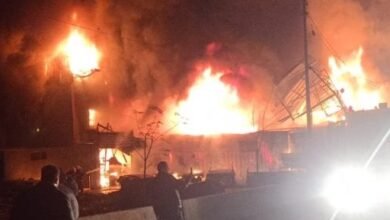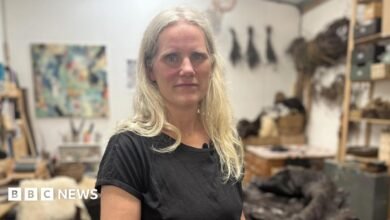Lyse Doucet: HTS leader not only player in Syria’s fast-changing future

“The story is not written yet,” cautions Marie Forestier, senior Syria advisor for the European Institute of Peace. She, and other informed observers who happened to be attending the annual Doha Forum, point out that it was another rebel group, recently named as the Southern Operations room, working with people living in the city, who surged into the capital. The ranks of this force are dominated by fighters from the former Free Syrian Army (FSA), who worked closely with western powers at the start of Syria’s 2011 uprising,
“The game starts now,” is how Ms Forestier describes the start of this momentous new chapter marked by an explosion of celebration in the streets, but also critical questions about what emerges next.
As the Islamist Hayat Tahrir-al Shams (HTS) pushed forward with astonishing speed, facing scant resistance, it sparked a rush by rebel forces in other regions of Syria as well as a surge of armed local groups keen to play a part in their own areas.
“Fighting the Assad regime was the glue that kept this de facto coalition together”, says Thomas Juneau, Middle East expert at the University of Ottawa’s Graduate School of Public and International Affairs, who is also in Doha.
“Now that Assad has fled, continued unity among the groups that toppled him will be a challenge,” he says.
The groups include an umbrella alliance of Turkish militias known as the Syrian National Army who, like the HTS, dominated a corner of northwest Syria. In the northeast, the mainly Kurdish Syrian Defence Forces (SDF) groups have also gained ground and will be determined to hold on to their gains.
But HTS’s ambitious high-profile leader has seized the spotlight. His rhetoric and record are now under scrutiny by Syrians, as well as in neighbouring capitals, and far beyond. The commander whose militia first emerged as an Al-Qaeda affiliate broke ranks with the jihadist group in 2016 and has been trying to polish his image since then. For years, he’s sent conciliatory messages abroad; now he is reassuring Syria’s many minority communities they have nothing to worry about.
Source link



